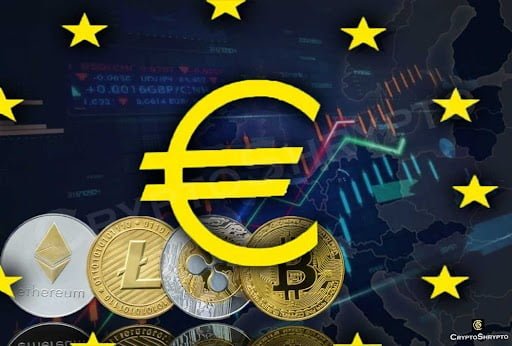On May 25, the European Central Bank (ECB) released a survey on how much of the Eurozone population owns cryptocurrency. According to the survey, one out of every ten households in territories where the euro (EUR) is the official currency owns crypto assets such as Bitcoin (BTC) or Ethereum (ETH).
According to ECB research, more than 14 out of 100 Netherlands respondents claimed that they or someone in their household had cryptocurrency holdings. Spain and Italy are just two points behind the Netherlands, with 12 out of 100 respondents owning crypto assets. Belgium follows the lead with 10 out of 100, Germany with 9, and France with 6. This adds up to an average of one in ten.
Retail investors who invested less than €1000 took the biggest share of the pie. This category accounted for 37% of the pie chart, with investors holding up to €5000 covering the remaining 29%.
According to the Consumer Expectations Survey, young educated males are the most likely to own cryptocurrency. Surprisingly, financial literacy appeared to be a key factor, but citizens with low financial literacy were far more likely to invest in cryptocurrencies than those in the middle.
Income is subject to the same rules. It seems to be reasonable that individuals who earn the most would also invest the most. Indeed, the majority of crypto was owned by 20% of the richest individuals in each of the six countries. But in the six countries, those with the lowest incomes were more likely to invest in cryptocurrencies than those in the middle class.




